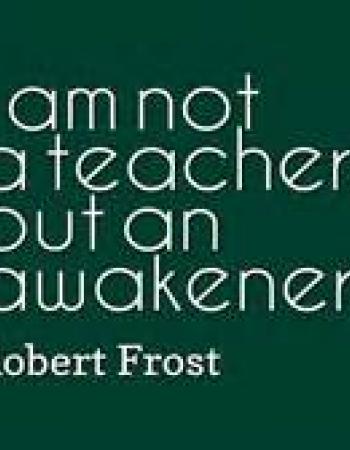Cosmology and Politics in Wole Soyinka’s A Dance of the Forests
, Hala Maziad Altuwaijri . 2013
The collectivism and immediacy of dramatic experience challenge playwrights to
employ this genre in order to convey political, cultural, and sometimes
philosophical or ideological messages. Hence, if a country is in a state of war,
under colonialism, or undergoes a revolution, the stage functions as a platform
where resistance or acceptance is presented, and where identity marking can take
place. In this chapter, my intention is to focus on drama as play that is a medium
through which issues of history, cosmology, and a nation’s politics are addressed.
Particularly, I would like to examine A Dance of the Forests by the Nigerian Nobel
laureate, Wole Soyinka. The play exemplifies how the stage can be used to present
the cosmology and worldview of a culture in general, and of the Yoruba in
particular, in a context that challenges the romanticised history of pre-colonial
Africa and the political future of post-independent Nigeria. In 1960, the year of
Nigeria’s independence from British colonization, Soyinka was awarded a
Rockefeller bursary and returned to Nigeria to study African drama. He returned
with a clear sense of scepticism about the political future of his country. Therefore,
when he was asked to write a play that would celebrate independence, he seized
this opportunity to challenge the Nigerian audience to re-evaluate their political
future when the heroism and chivalry of independence fades away. Hence, the
gathering of the tribes is the pre-colonial context that Soyinka used to parody the
political future of Nigeria. My chapter is divided into two parts. The first part
focuses on the deployment of the play in terms of presenting the peculiar
cosmology and worldview of the Yoruba. A Dance of the Forests is a play that
demonstrates a complex interplay between gods, mortals, and the dead while it
addresses the experience of self-discovery within the context of West African
spiritualism. The second part is devoted to the use of the play as a warning against
a disturbed political future under the tyranny of local leaders. Soyinka used precolonial
history to assert that tyranny and dictatorship were not restricted to
colonisers, but have also been practiced during the times of African leadership.
Key Words: Drama, colonisation, revolution, pre-colonial history, cosmology,
Yoruba, Africa, Nigeria, politics, African Spiritualism, West-African mythology.

The massive spread and popularity of social media networks (SMN) are generating an intellectual evolution that is shifting the direction of art and creative writing to new interdisciplinary…

The collectivism and immediacy of dramatic experience challenge playwrights to
employ this genre in order to convey political, cultural, and sometimes
philosophical or ideological…

